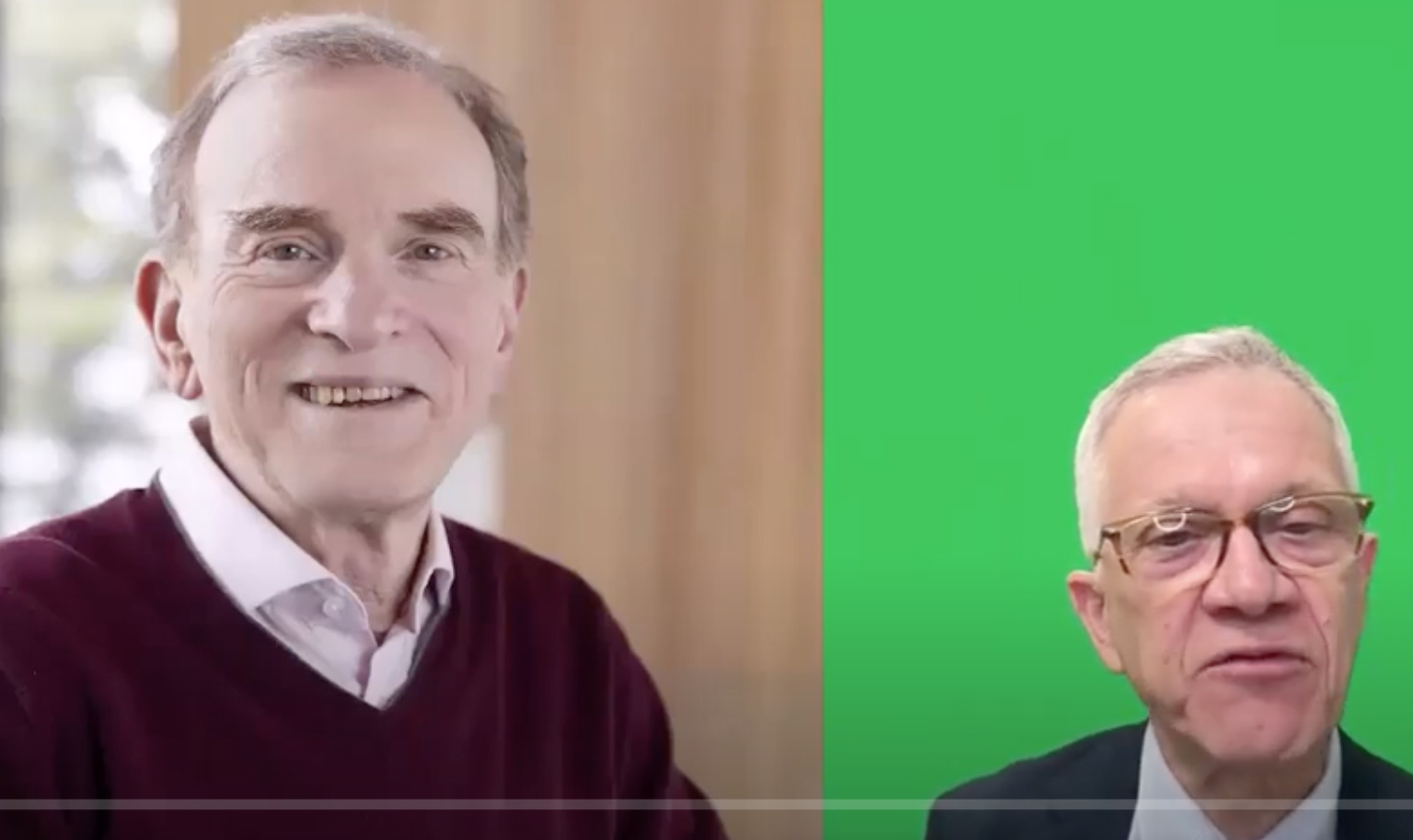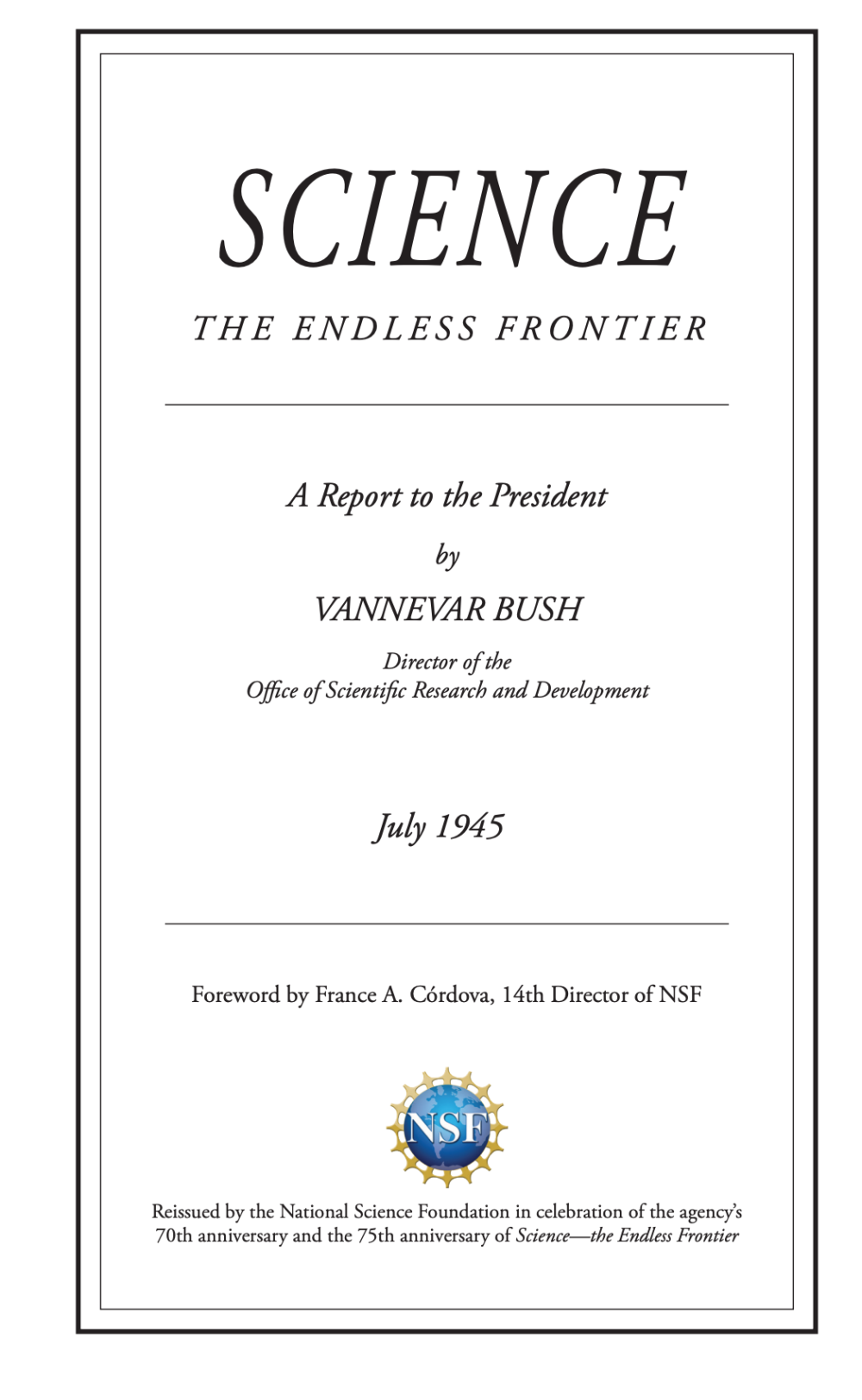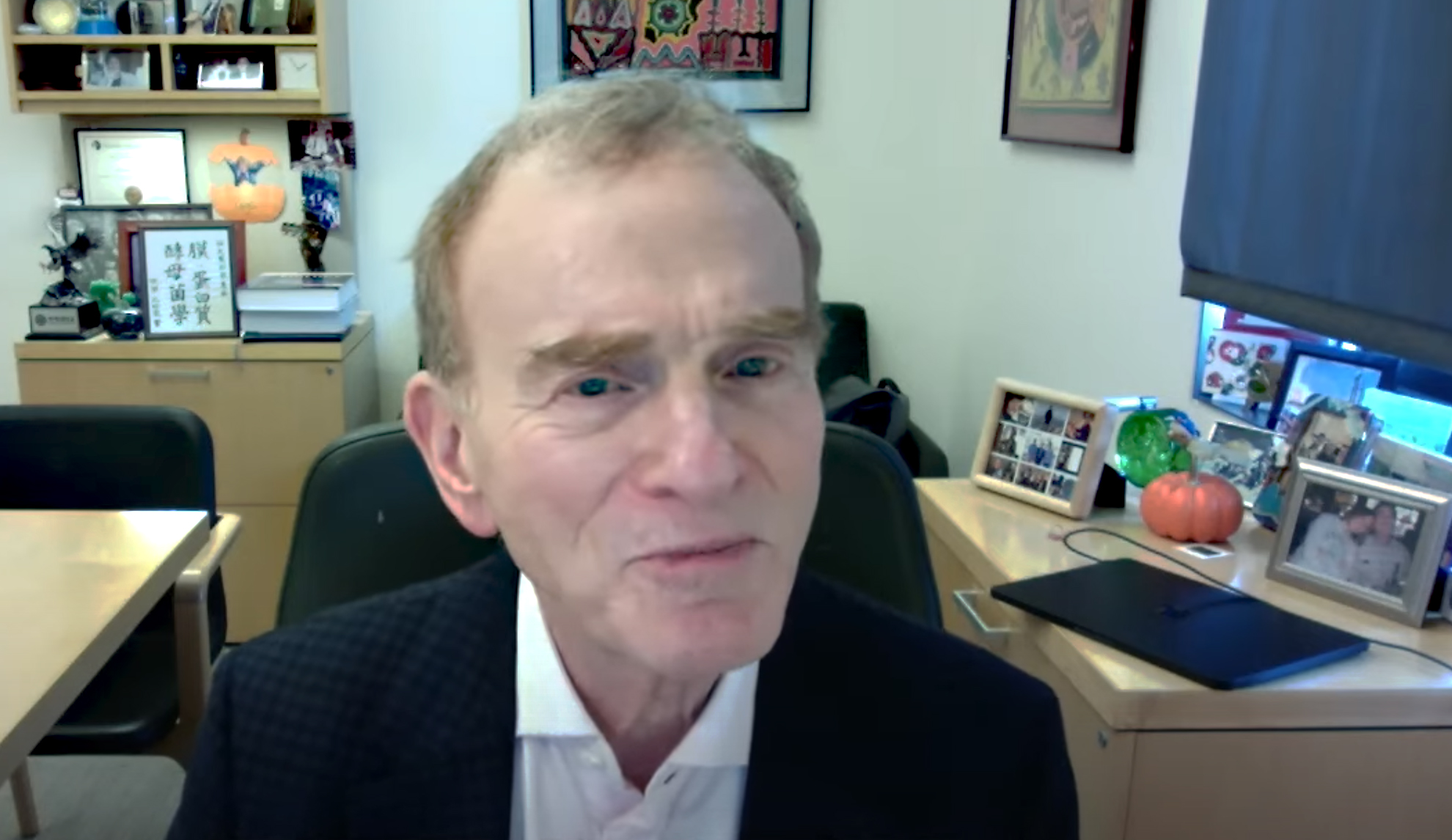
Federally Funded Science Research in Jeopardy
UC Davis-Based Webinar Issues a Call to Action

Several Nobel Laureates and two dozen other scholars who participated in a July 1st UC Davis-based webinar offered "valuable insights into the urgent threats facing scientific research in the U.S., along with the broader consequences for public health, innovation, and global leadership," said UC Davis Distinguished Professor Walter Leal.
Leal, a member of the National Academy of Sciences (NAS), organized and coordinated the webinar, "Beyond the Headlines: The Invisible Power of Academic Research in America." The webinar marked the 80th anniversary of "Science--The Endless Frontier," a document that propelled the United States into its current position as a global leader in science, technology, and defense.
Vannevar Bush (1890-1974), director of the Office of Scientific Research and Development during World War II, submitted the Science document in July 1945 to President Harry S Truman. It led to the formation of the National Science Foundation (NSF). In the document, Bush advocated for government funding of basic research in universities, colleges, and research institutes because "that’s where the talent is." He wrote that "The most important ways in which the Government can promote industrial research are to increase the flow of new scientific knowledge through support of basic research and to aid in the development of scientific talent."

The webinar drew 454 participants via Zoom and an additional 205 watched it on YouTube. (The Zoom license capped attendance at 500.) The recorded seminar can be viewed at https://youtu.be/Tq5-vBrSDYc.
Nobel Laureate Randy Schekman, a Distinguished Professor in the UC Berkeley Department of Molecular and Cell Biology and a member of NAS since 1992, keynoted the webinar and interacted with a panel of distinguished scholars. Schekman, a Howard Hughes Medical Institute investigator, shared the 2013 Nobel Prize in Physiology or Medicine with colleagues James Rothman and Thomas Südhof for their pioneering discoveries on the mechanisms of vesicle trafficking in cells.
In his presentation, Schekman declared that "Breakthroughs in the sciences require resources that can only come from investments provided by governments, venture capital, and philanthropy." He related that "government funding of basic research started after World War II with a transformative report, science, endless frontiers, written by Vannevar Bush, the science adviser to presidents Roosevelt and Truman." He quoted Bush: "Scientific progress on a broad front result from the free play of free intellects working on subjects of their own choice in the manner dictated by their curiosity for exploration of the unknown. Freedom of inquiry must be preserved under any plan for government support of science."
World-Leading Powerhouse
"Opportunities for education in the U.S. exploded in the 1960s," Schekman said. "The race to space initiated by Eisenhower and Kennedy led to a substantial increase in federal support of science and science education. This investment nourished generations of American and immigrant scholars that made the U.S. the world-leading powerhouse of 20th century science and technology."
Schekman lamented the "attack on science" by the current White House administration and the challenges that scientists face. "Despite over 80 years of progress that led from the foundational report of Vannevar Bush, just a few months into the current presidential term, the infrastructure that supports science in this country faces an existential crisis. We are now challenged by an increasing antagonism to science and the scientific method, even to the point of ignoring the overwhelming evidence of a role for fossil fuels in climate change and a rejection of the success of the mRNA vaccines and the anti-retroviral medications that have reversed the certain death sentence of an HIV infection."

"The current Secretary of Health and Human Services, who is neither a scientist nor a physician, has embraced the fringe views of vaccine and HIV AIDS skeptics and has recommended cancelling National Institute of Health (NIH) grants supporting infectious disease research," Schekman said. "He's fired all the members of the CDC (Center for Disease Control and Prevention) committee charged with vaccine policy and replaced them with other fringe vaccine skeptics. Academic institutions where most of the basic science is conducted are under attack based on false claims of anti-semitism and a supposedly unbalanced application of civil rights. Universities and research institutes have been directed to accept grants with an unsustainable low level of indirect cost, a restriction that has not been imposed on other government support for agencies such as those that support aerospace and defense industries."
Science Funding Restrictions
Schekman noted that NSF "is being evicted from its headquarters" and that the director of the Office of Management and Budget (OMB) "has publicly expressed the view that science can be supported only in so far it is as it is consistent with fundamentalist Christian principles. If Congress proceeds with the current budget, Fiscal Year26 will see a 50 percent decrease for the NSF and a 40 percent decrease for the National Institutes of Health (NIH). We face a sea of change in government support that has shocked our colleagues around the world. Some of whom have offered a lifeline not unlike the Marshall Plan after World War II. Science will continue to advance around the world. Even as we take a back seat in adjusting to a new reality, our place may be taken by those countries such as China, where an enormous investment in basic science continues to grow as our support dwindles."
"It is now up to our leaders of the scientific community to speak up more forcefully in support of science," the Nobel Laureate said. "This message must be taken beyond Washington to all corners of this country...We have a powerful message to deliver that an investment in basic science pays enormous dividends in improved health outcomes and technological development. We need the next generation of scientific leadership to show that America can still lead the way."
Federal investment in science is not a cost--it's a national asset and must be protected, Leal told the webinar audience. On July 2, he shared an executive summary and a detailed summary of the webinar, "The Case for Protecting Federal Support for Scientific Research," with the registrants and with his congressional representatives. Leal, a Distinguished Professor with the Department of Molecular and Cell Biology, and a former professor and chair of the Department of Entomology encourages "others to amplify the message."
Executive Summary
"America’s scientific strength is not just a line item in a budget—it is a strategic national asset. Protect it. Invest in it. Lead with it."
Detailed Summary
"For over 80 years, the partnership between the U.S. federal government and its research universities has been a cornerstone of American innovation, public health, and national security. This collaboration, launched by Franklin Delano Roosevelt and formalized in Vannevar Bush’s 1945 report Science--The Endless Frontier, created a science funding system that led to transformative discoveries in medicine, technology, agriculture, and defense. It helped the U.S. become the global leader in science and innovation.
"Today, that legacy is under threat.
"What’s at Stake? The proposed FY26 federal budget includes devastating cuts:
- 50 percent cut to National Science Foundation
- 40 percent cut to National Institutes of Health
- Drastic reductions to U. S. Department of Agriculture, Department of Defense, and Department of Energy science programs
- Cap on indirect cost recovery at 15 percent, far below the actual cost of administering federally funded research
"These cuts would not only jeopardize individual research projects—they would destabilize the entire research enterprise, diminish U.S. competitiveness, and cause a brain drain as top scientists seek opportunities abroad."
Some of the comments received:
- Thank you for organizing this important event. It was so wonderful to hear from remarkable scientists and share our common concerns. The words of Torsten Wiesel brought tears to my eyes.
- The U.S. has been insufficiently funding science for decades. The current policies are an unmitigated disaster from which recovery will be lengthy, if at all possible.
- Thank you very much for this webinar. What a treat to hear from so many Nobel Prize-winning scientists on this timely issue! I must say that Torsten Wiesel was a favorite! Such an advocate for the power of intellectual curiosity at 101.
- A triumph! We must call our legislators every day, every week. Thank you for all you do!
- Thank you for organizing. The two Presidents of the National Academies and the UC Berkeley Lawyer are sensational. Excellent event. Bravo!
